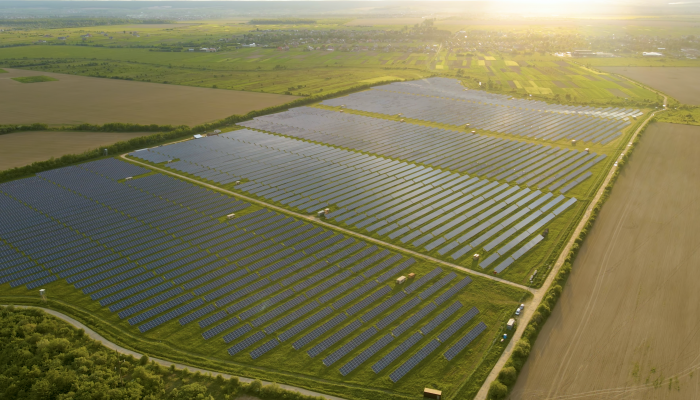In tandem, companies are increasingly being accused of greenwashing when their ESG (environmental, social and governance) policies are scrutinised. Rather let’s cut through the emissions with a collection of bellwethers that places a human element at the centre of climate debate.
Last year, management consulting company Avanade surveyed 750 tech executives and 750 sustainability leaders around the world. Unsurprisingly, business leaders unanimously agreed that ESG is important but actions speak louder than words.
Fully 45% of the companies said business priorities still take precedence over sustainability objectives, while 25% don’t have a plan to reach their goals. Only 14% of executives are attempting to implement their ESG policy and 93% admitted they haven’t completed their ESG framework.
The time for debate and procrastination is over. There is ample evidence that global economies are being affected by extreme weather. Food security is increasingly at risk and human displacement is becoming a geopolitical issue.
The plight of farmers
Scorching heat and drought are wreaking havoc in Spain, specifically in the inland province of Jaén, the olive oil capital of the world. It produces half of Spain’s oil output, which is more than Italy’s total annual yield. Extreme weather has cut the farmers’ output by a fifth of the average 50 000 litres of olive oil per season. As one farmer lamented, “No water, no future.”
Drought has also ravaged crops across Europe: maize in Romania, rice in Italy, beans in Belgium, and beetroot and garlic in France.
In the Nile Delta, farmers are battling a combination of extreme heat and rising sea levels, which creates salinity in the soil. One farmer has been forced to stop growing tomatoes – they don’t grow with the high saline content in the soil – and switch to rice, because the irrigation for this crop helps cleanse the soil. “If you leave the land 10 days without watering it, you’ll find salt on the surface,” he explains. The Nile Delta accounts for more than a third of Egypt’s agricultural land.
In South Africa, wine farmers are also having to switch cultivars. Global warming has not only shifted the growing season, but has also altered the grapes’ sugar content, forcing farmers to grow warmer-climate wine varieties, such as Cabernet Sauvignon, instead of cooler-climate varieties like Chardonnay.
Animals are ‘shape-shifting’
Scientists at Deakin University in Australia are finding evidence that animals have started to “shape-shift” to accommodate changes in climate patterns. They are discovering that animals – birds in particular – are growing larger beaks, legs and ears, which allow them to better regulate their body temperatures as global warming becomes more pronounced. It shows that animals are evolving, but does not necessarily mean that they are coping with climate change.
The term “adapt or die” has never been more apt.
Climate refugees and climate-proof housing
Back-to-back flooding in KwaZulu-Natal in 2021 brought the issue of climate change closer to home and gave South Africans a glimpse of what extreme weather can unleash, and the human suffering it can bring.
Around the world “climate refugees” have become common: people who are no longer prepared to live in an area that is repeatedly affected by extreme weather, or who are tragically displaced by its aftermath. The 2021 floods in Pakistan displaced 33 million people.
Architects from Amsterdam to Lagos are now experimenting with “amphibious homes” to circumvent flood disasters. These floating homes are either built on water or have the ability float when water levels rise. The latter are designed to sit on the ground, like conventional houses, but in the event of flooding they can float as the water level rises and are moored to their location to prevent any relocation.
The South Korean government is taking climate-proof housing seriously by launching the world’s first self-sustaining floating city called Oceanix Busan. This floating city will accommodate 12 000 people and includes residential apartments, offices, parks, green energy grids and hydroponic farms. It will generate 100% of its energy and water needs. The first stage of the project will be ready in 2025.
Climate shelter apps
If ever there was a bellwether for climate change it is the Cool Walks app launched in 2021 by the city of Barcelona. The app shows pedestrians alternative routes to a destination with maximum shade and identifies drinking fountains along the way.
In 2022 the city introduced a new app, this time providing locations of “climate shelters” dotted around the city. The shelters are a mix of existing municipal facilities and public spaces, which are pinned on an online map and made available to residents who need to escape extreme temperatures. The city more than doubled the number of its climate shelters from 70 to 163 in 2021. They are open to the public from June to September.
The city’s initiative means that 90% of the population now live within a 10-minute walk of a climate shelter, with the aim of allowing all Barcelona residents to be within a five-minute walk of a shelter by 2030.
Climate litigation: The Gen Z strategy
Gen Z – the first digital natives of humanity – are proving to be the social justice warriors who are leading the new wave of climate litigation. Teenagers across the globe are fighting climate change in court.
In 2017, six youth activists from Portugal filed the first climate change case against 33 countries at the European Court of Human Rights. The crowdfunded legal action broke new ground by suing multiple states both for the emissions within their borders and also for the climate impact.
In 2018, 25 young Colombians took their government to court demanding a right to a healthy environment free of deforestation and the irreversible impacts from climate change.
In 2019, seven Peruvian teens filed a complaint against the Peruvian state for its alleged failure to adequately halt deforestation in the Amazon, arguing that their futures will be compromised due to climate change.
In Australia, Mark McVeigh was just 24 when he sued a superfund for failing to mitigate the risks of climate change in his investment portfolio. He alleged that the company, Rest, breached the Superannuation Industry Act and the Corporations Act by failing to manage risks, which could include fossil fuel companies plummeting in value or infrastructure being damaged by extreme weather. In a landmark ruling in 2020, which sent ripple waves across the investment industry, he won his case.
More than 1 400 climate-related lawsuits have been filed around the world since the late 1980s but the last four years have seen the largest number of cases. Generation Z started coming of age at the same time. Climate litigation is their new battleground.
KEY TAKEAWAYS
In the financial world the term “green swan” is becoming more common. The term mimics the expression “black swan”, which refers to an unpredictable event with severe economic consequences.
The South African Reserve Bank has warned that climate change will create policy risks for the bank and that disruptive "green swan events" would have a negative impact on business and the financial stability of the country.
In the last three years the climate change conversation has moved rapidly from an academic/scientific debate to one of high-level risk for global economies and humanitarian disasters.
Business leaders dragging their heels on their ESG policies is like Nero fiddling while Rome burns. If the growing evidence of how humanity is being adversely impacted by climate change is not enough to motivate for collective change, then one can only assume there is a dirty lump of coal where their hearts should be.
Dion Chang is the founder of Flux Trends. For more trends as business strategy, visit www.fluxtrends.com.







